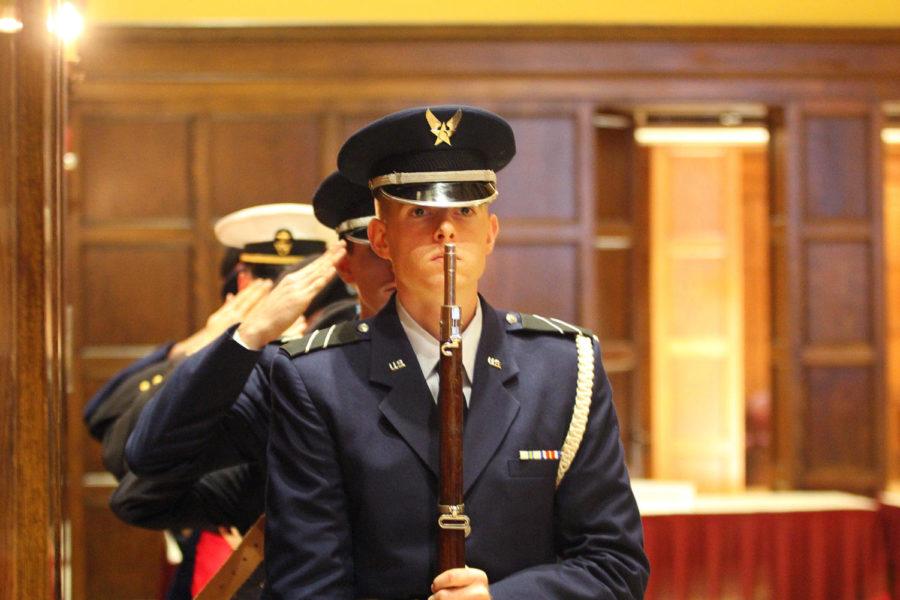Two Iowa State Alums Honored at Gold Star Hall Ceremony
November 13, 2012
“Sharing stories is one of the best ways to underscore the uniqueness of the individual that he or she was.”
This statement, offered by Michelle Hendricks, director of the Thomas B. Thielen Student Health Center, represents how two heroic ISU alumni were honored at the Gold Star Hall ceremony at the Memorial Union.
These two heroes, 2nd Lt. Allan Ewoldt and Maj. Don Beerbower, served significant, as well as tragic roles in the throes of World War II.
Their names, amongst thousands of other fallen ISU military personnel, grace the walls of Gold Star Hall at the Memorial Union.
Two ISU faculty members spoke on behalf of Ewoldt and Beerbower, using compiled information from relatives, military records and other various sources to illustrate the lives of these two men as well as their tragic heroism.
Speaking for Allan Ewoldt was Terry Mason, assistant vice president for student affairs.
Mason said Ewoldt entered the U.S. Army Air Corps in 1941, during what would have been his sophomore year. During his time in the Air Corps, he eventually worked his way up to second lieutenant in the 348th Bombardment Squadron, 99th Bomb Group.
After serving in a successful Northern African Campaign, Ewoldt became a key factor in what was called Operation Husky: a strategic air attack on Sicily, which in turn, would go on to knock Italy out of the war.
Ewoldt has received high decoration for his service, most notably in receiving Distinguished Flying Cross, the second highest medal of valor awarded to servicemen.
The second honoree, Don Beerbower, was spoken for by Scott Southward, Marketing Manager for the Memorial Union. Much of the information provided on Beerbower was noted to be attributed to Paul Sailer, author of The Oranges Are Sweet, a biography of Maj. Beerbower.
Southward spoke of Beerbower’s leadership skills that allowed for rapid upward mobility in the Air Corps.
His rapid ascension resulted in the title of Major at the ripe age of 22. Thereafter, he became what is known as a Triple Ace, taking down more than 15 German planes.
His lofty career, however, tragically ended on Aug. 9, 1944, when he took part in a risky endeavor into German territory.
His plane was shot down, and he did not survive the crash.
Beerbower was highly revered by his peers and superiors. Brig. Gen. James Howard considered him “the greatest fighter pilot in the European theater.”







